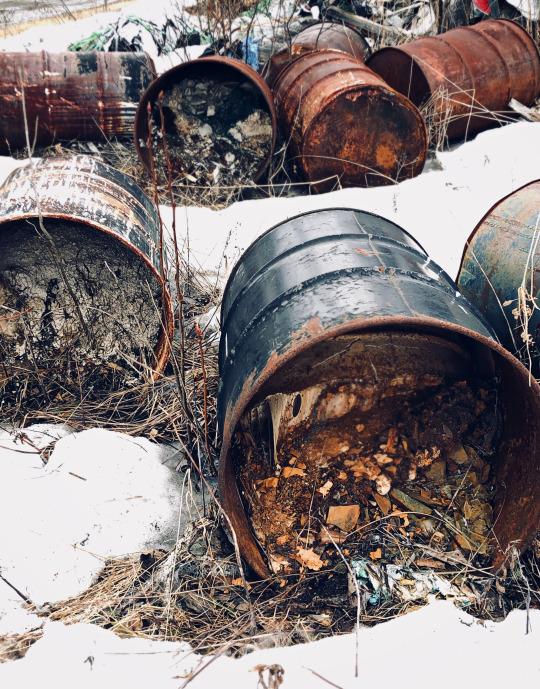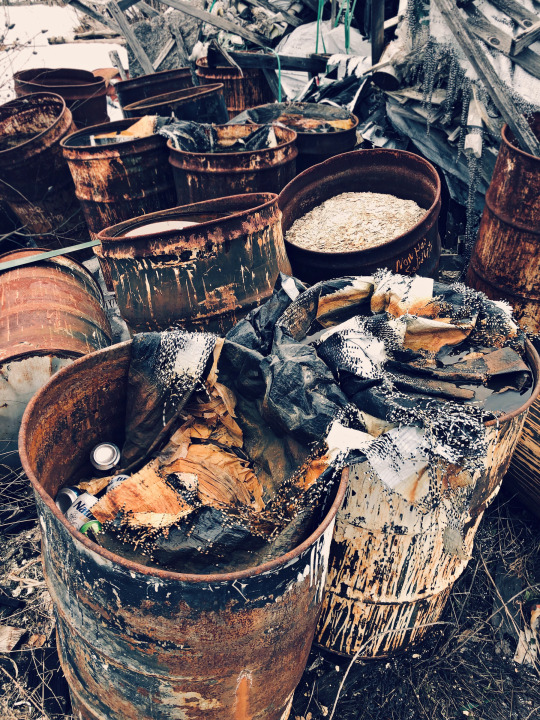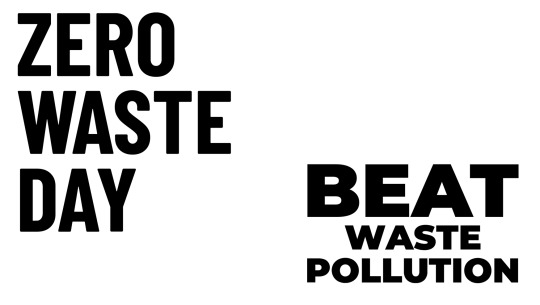#Industrial waste
Text


the skrunkly ladies
industrial waste, wrinkle, and meat (smokey was not facing me)
#personal#ratblr#fancy rats#naked rats#hairless rats#dumbo rats#domestic rats#my rats#industrial waste#wrinkle#meat
101 notes
·
View notes
Text






It's rotton work.
48 notes
·
View notes
Photo

Murray Street, Manchester.
#industrial waste#nuclear#mass of the fermenting dregs#radioactive#ectoplasm#cig dimps#discovered some green#caroline lucas#Manchester#street cleaner#cleaning the streets#of crime#double yellows#wheelie
59 notes
·
View notes
Text

Untreated industrial waste spews forth from a sewage pipe into the Buriganga River. The photo was taken from Dhaka's Shyampur area. — FE Photo
5 notes
·
View notes
Text
Thought as long as we're wringing our hands about the train derailment in Ohio and industrial pollution it might be a good time to review the environmental regulatory track record for Ohio on a subject I'm quite familiar with. This isn't hyperbole or fake news. I was a guard on the water treatment pads in Pennsylvania where we separated the "heavy mud" (radioactive) drilling waste and shipped it by truck to Ohio for disposal every night. Ohio and West Virginia were the primary dumping grounds via injection well disposal for all sorts of very nasty byproducts from the shale gas extraction process. You can't continue to live in a Republican libertarian fantasy. Freedom to, and freedom from, require some collective actions and no amount of individual cowboy attitude or rich kid money will stand up to industry like strong regulation. Fracking didn't turn northern tier PA into a ShangriLa of monopoly men. It's just just as backwards and broken and poor as it always was, only now there's one more thing to wonder about when the sicknesses start to accumulate. Crying about a toxic train wreck in a state known for making itself a toxic waste dump isn't going to help. You need to take this to the politicians starting with the locals and working up. We learned zoning was a great tool when higher up channels were bought out. Zone out components of the issue. Can't zone out toxic trains? Zone out something that makes them 10 times as expensive to run. Town board won't hear it? Get a new board. Don't just whine about something that was as easy to see coming down the road as anything in a state as flat as Ohio... Get busy.
5 notes
·
View notes
Text
Remarks by the United Nations General Assembly President on behalf the Commemoration of the International Day of Zero Waste 2024; March 30th.

Your Excellency, Sedat Önal, Permanent Representative of the Republic of Türkiye to the United Nations, Ms. Ligia Noronha, Head of UNEP New York Office, Ms. Mr. Michal Mlynár, Acting Executive Director of UN-Habitat, Excellencies, Ladies and Gentlemen,
Let me begin by commending the Permanent Mission of the Republic of Türkiye, the United Nations Environment Programme, and UN-Habitat for co-organizing today’s event – marking the International Day of Zero Waste. We are all deeply appreciative of your ongoing efforts to promote zero-waste initiatives – contributing to advancement of the 2030 Agenda for Sustainable Development. I think it more than appropriate to pay tribute to the distinguished First Lady of the Republic of Türkiye, Ms. Emine Erdoğan, the protagonist and initiator of the Zero Waste project in her own country. It was the astounding success of this that motivated the General Assembly to the adoption of a resolution tabled by the Republic of Türkiye – declaring 30 March as the International Day of Zero Waste.
Excellencies, The numbers and trends speak for themselves in describing the situation as nothing short of harrowing: 2.24 billion tons of municipal solid waste are generated annually, around 931 million tons of food is lost or wasted each year, up to 14 million tons of plastic waste enters aquatic ecosystems,
and food loss and waste accounts for up to 10 per cent of all greenhouse gas emissions – significantly contributing to the climate crisis. Without urgent action, it is projected that annual municipal solid waste generation will hit 3.8 billion tons by 2050. Moreover – if we cling to the business-as-usual mentality – we will have more plastic than fish in the ocean by 2050.
Excellencies, Today – as we commemorate this important day – we urgently need to pause and rethink the unsustainable linear development model of “take, make and dispose” we have been so actively pursuing. It is high time we replace that model with sustainable practices of production and consumption to minimize our ecological footprint – including adopting a circular approach that promotes a resource efficiency model of reduce, reuse and recycle.
To achieve this, we must shift our perspective and accelerate our efforts to develop and implement zero-waste initiatives to foster the environmentally sound management of waste; the minimization of waste; and – where feasible – the total prevention of waste. Such a societal shift should not be a burden. Rather, it should be seen as an opportunity not only to mitigate environmental harm but also to foster innovation, create green jobs, and promote social inclusion. It should also be viewed as an opportunity to invest in sustainable infrastructure, prioritize eco-friendly technologies, and empower communities to become true stewards of their own environment. Allow me to also reiterate the commitments made by the world leaders in the 2023 SDG Summit political declaration – which acknowledged the serious threats posed by plastic, air, and chemical pollution, and expressed firm support for an international legally binding instrument on plastic pollution. I am also deeply grateful to share this moment with a youth representative. The youth are the change-makers. Their perspectives and actions are absolutely critical in our efforts to reach zero waste – and they deserve a say on such matters that have a life-changing impact on their future.
Meeting our zero waste objectives and targets requires a comprehensive multi-stakeholders approach, at all levels – from grassroots initiatives to national policies, from corporate boardrooms to international fora. Our approach must also square the circle to encompass policy alignment, knowledge sharing, capacity-building, resource mobilization, and technology transfer. Importantly – and in the true spirit of leaving no one behind – our commitment and indeed our transition to Zero Waste must be beneficial to all, especially countries in special situations.
Excellencies, Ladies and Gentlemen, Let me close by reiterating that our commemoration today is rooted in a robust commitment to pursue and attain sustainability within the framework of the 2030 Agenda – through, among other things, converting to sustainable patterns of production and consumption. To this end, sustainability remains one of the core priorities of my Presidency – the full manifestation of which will be rolled out during the inaugural Sustainability Week I will be convening from 15 to 19 April. I envision that this Week of back-to-back high-level engagements will spark in-depth discussions on transport, tourism, energy, infrastructure, and debt sustainability and socio-economic equality – propelling substantial progress in these key sectors of the economy.
I further expect that Zero Waste initiatives – with their cross-cutting relevance across these sectors – will feature prominently in the discussions. Furthermore, it is my sincere hope that the harvest from this Week will both inform the deliberations of the Summit of the Future and accelerate momentum towards attaining all the SDGs. The journey towards Zero Waste does not by any means involve a simple unplanned destination – but rather, a continuous process of learning, adaptation and innovation. As the President of the General Assembly, I will play my part – and I call upon us all to harness the power of collective action and solidarity to turn the tide on waste.
I wish you all a fruitful discussion.
I thank you.
H.E Mr. Dennis Francis; United Nations General Assembly President.
#waste management#international day of zero waste#30 march#zero-waste initiatives#take action#zero waste#industrial waste#municipal solid waste#solid waste#Statements#united nations general assembly
0 notes
Text
/PRNewswire/ -- Industrial Filtration Market is expected to reach USD 47.1 billion by 2029 from USD 37.1 billion in 2024 at a CAGR of 4.9% during the forecast period according to a new report by MarketsandMarkets™.
#industrial filtration#industrialization#industrial#energy#energia#power generation#utilities#utility#power plant#power plants#industrial wastewater treatment#industrial waste#wastewatertreatment#wastewater treatment#zero waste#waste management#filter press#bag filter#filtration#water filtration#oil and gas industry#enviromental
1 note
·
View note
Text

inside of a wet pick-up shop vac used to siphon the coolant runoff from CNC machines and mini-mills.
0 notes
Text
me waking up today at 6pm

(thats industrial waste)
39 notes
·
View notes
Text
Medical Waste Disposal Cullman Alabama | Trihaz Solutions
TriHaz Solutions is dedicated to providing integrated healthcare waste solutions that meet your safety, regulatory, and financial requirements. The TriHaz team offers medical waste disposal services throughout the Cullman area.
TriHaz Solutions takes numerous safety measures to minimize infection and environmental contamination. They follow strict protocols for proper collection, packaging, and labeling of infectious waste, pharmaceutical waste, and biological waste.
Additionally, they use state-of-the-art technologies for the safe transportation and disposal of hazardous materials, including needles, syringes, and other sharp objects. By prioritizing safety and environmental responsibility, TriHaz Solutions ensures that the risk of contamination is significantly reduced, protecting the well-being of both people and the planet.

#waste management#waste collection#waste disposal#environmentalservices#trihaz solutions#medical waste disposal cullman#industrial waste#hazardous waste#sharps waste
0 notes
Text
youtube
INDUSTRIAL WASTE - nobody cares (2023)
#cryin in the goth club#industrial waste#alternative#low-fi#post punk#goth#new music#2023 jams#Youtube
1 note
·
View note
Text
Commercial Waste Management Overview
Commercial waste management is a critical aspect of responsible business operations for national chains and large corporations.
Commercial Waste Overview
Commercial waste management is a critical aspect of responsible business operations for national chains and large corporations. Additionally, efficient waste management not only ensures compliance with environmental regulations but also contributes to cost savings, resource conservation, and a positive public image. In this article, we provide an overview of commercial…

View On WordPress
#commercial waste#commercial waste management#compliance#cost reduction#efficient waste management#homedepo#industrial waste#lowes#national chains#recycling programs#resources#safety#target#walmart#waste collection
0 notes
Text
The Importance of Wastewater Treatment: Protecting Our Environment and Public Health
The importance of wastewater treatment cannot be emphasized, although it is a vital procedure that is frequently overlooked by the general population. It is essential to protecting the environment and the general public's health. This article examines the critical function of wastewater treatment in hyderabad and emphasizes the wide-ranging effects it has on our daily lives and the environment.
The wastewater challenge:
Wastewater is the used water that comes from households, places of business, and industrial waste and carries a variety of pollutants with it. This covers a wide range of substances, such as detergents and human waste as well as chemicals, heavy metals, and even medications. Wastewater can have severe effects on the environment if it is not treated, contaminating water sources, destroying aquatic habitats, and providing serious health hazards to people. There are many wastewater management companies in hyderabad that focus on cleaning this contaminated water.
Environmental safety:
Aquatic life can be severely hampered by the discharge of untreated wastewater into rivers, lakes, and oceans, which threatens aquatic ecosystem preservation. Algal blooms, fish kills, and the devastation of sensitive ecosystems are all possible outcomes of an excess of nutrients, diseases, and toxins. The advanced treatment of wastewater prevents harm to aquatic ecosystems.
Pollution prevention: When wastewater is properly treated, toxins and other pollutants are removed from the water, allowing it to be safely released back into the environment. This aids in keeping natural water sources clean so they are safe for use by humans and the ecosystems that depend on them.
Protecting Biodiversity: A lot of species rely on clean water to survive. We preserve the biodiversity of our world and keep ecosystems in balance by treating wastewater.
Protection of public health:
Disease prevention: Untreated pathogens in wastewater can cause an outbreak of waterborne diseases, jeopardizing the public's health. Waterborne illnesses including cholera, typhoid, and dysentery can be controlled with proper wastewater treatment.
Pharmaceuticals and chemicals: If pharmaceuticals and chemicals are found in untreated wastewater, they may eventually make their way back into our drinking water supply and cause long-term health issues. To keep our drinking water safe, harmful pollutants must be removed through advanced treatment of wastewater.
Clean Recreational Waters: Safe swimming and other recreational activities in natural water bodies can be enjoyed without worrying about being exposed to dangerous contaminants thanks to effective wastewater treatment.
Modern wastewater treatment facilities feature cutting-edge technologies that effectively remove pollutants and impurities. These developments include filtration devices, chemical and biological treatment methods, and processes that clean water and improve the environment.
Even though wastewater treatment isn't usually in the spotlight, it plays a crucial role in safeguarding the environment and advancing public health. We help preserve natural ecosystems and defend ourselves from the dangers of untreated wastewater by making sure the water we consume is treated before it is released back into the environment.
Wastewater treatment is a crucial component in a time when sustainability and health are top priorities. It exemplifies how wise resource management may assist us in making the planet a safer, cleaner, and greener place for both present and future generations.
#Wastewater treatment#advanced treatment of wastewater#industrial waste#wastewater management companies in hyderabad#wastewater treatment in hyderabad
0 notes
Text
Are you want to know what is Industrial Waste? Here we discuss some points. For more read this blog.
0 notes
